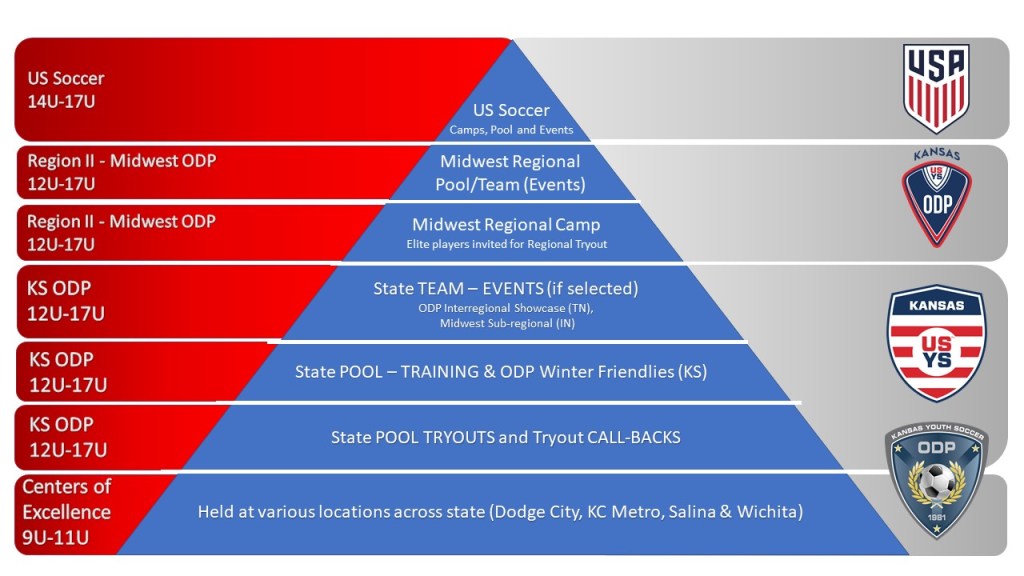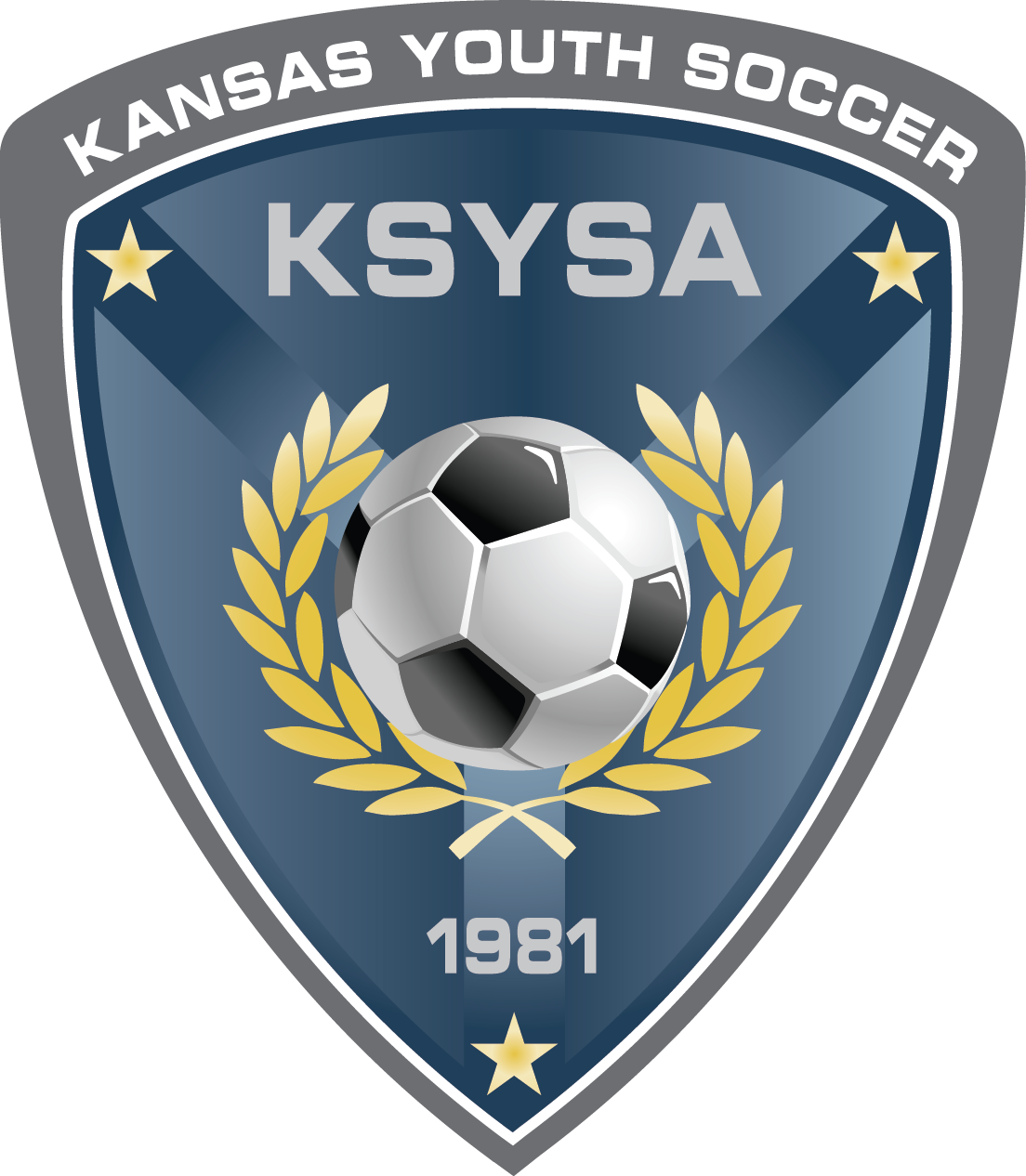
The ODP was created by US Youth Soccer in 1979 for two purposes:
1. To identify national team players early, at the youth level.
2. To provide development opportunities for these potential national team players.
To this day, these two core purposes, namely, IDENTIFY and DEVELOP for the national team, have not changed. However, many players have also come to associate ODP with improved opportunities for playing college soccer and getting college scholarships. This is because many college coaches work on ODP staff at the state, regional, and national levels and also most college coaches scout players at ODP events. College coaches consider a player’s participation in ODP as an indicator of talent and soccer ambition.
1. Development as a player. The opportunity to train and play with the best player’s in one’s age group.
2. Quality instruction from nationally licensed coaches.
3. Quality competition. Games against other state association ODP teams.
4. Exposure to regional and national team coaches.
5. The opportunity to represent one’s state, region, or country in competition.
6. Exposure to college coaches.
The ODP age group refers to the year in which a player was born. For example, players born between January 1, 2009 to December 31, 2009 are classified as 09’s. See the chart below for the upcoming seasons.
2020 – 2021
2004
2005
2006
2007
2008
2009
2021 – 2022
2005
2006
2007
2008
2009
2010
2022 – 2023
2006
2007
2008
2009
2010
2011
Players are evaluated on the four components that make up a soccer player:
1. Technique
2. Tactics
3. Fitness and Athletic Ability
4. Psych and Social Factors
The usual time allocation for Kansas ODP evaluations are approximately 2 hours.
Depending on the numbers involved, the actual length of the tryout could be less than 2 hours. It is up to the Lead Evaluator to decide how long is needed to accomplish the task.
Evaluations are physically demanding and if small numbers are involved, there is no need to keep the players going for 2 hours since fatigue will start affecting performance.
The Evaluators are a mix of Kansas ODP Staff coaches and club coaches who have experience at the highest club levels.
Midwest Regional Camp is held in early July each year. The two genders have their own separate camps, each at a different location. Since there are 4-5 age groups to evaluate, the camp is organized into 5-day-long sessions, with each session accommodating one or two age groups. At the end of the 5-day camp, a Midwest Region Pool is selected.
Just as at the state evaluations, quality first touch is the most important technical indicator of skill. Can the player control the ball with one touch or does he/she need multiple touches to bring the ball under control? Does the player get away from pressure with first touch or does he/she get into trouble because of a poor touch? This is closely related to the ‘speed of play’ at the elite level. The better the players, the higher the speed of play. In order for players to survive at the higher level’s speed of play, they have to have a good first touch.
The speed of play at the region pool level is much higher than at the state level and requires players to think quicker and control the ball quicker. Since players at this level are physically and mentally sharper, they anticipate and close down on the ball quickly, which means players have to execute their moves in tight areas, often surrounded by multiple opponents who pounce on every poor touch.
Another important attribute is what we call ‘quick feet’, i.e. the ability to change direction on a dime and shift weight from one foot to the other and evade challenges with quick foot movements. This is, in the long run, an indicator of soccer specific athleticism which is more important than sheer size. As players mature at varying rates, size eventually evens out. But someone with ‘quick feet’ will always have an advantage and is more likely to develop into an ‘explosive’ player, which is so vital at the elite level.
Athleticism becomes very important at the highest level once players mature physically. It is no longer possible to just rely on superior skill without speed, strength and power, since all the players are highly skilled. The better athletes ally their physical attributes to their skill to rise to the top.
Lastly, ‘soccer smarts’ is also evaluated at the region level. Decisions on the ball and off the ball are scrutinized. Being able to ‘read the game’ and understand what kind of pass is needed, how to keep the ball under pressure, where to position oneself, how to help the team maintain a good team shape in attack and in defense, when to support the ball from behind and when to make runs ahead of the ball. All of these problem solving abilities separate the state level player from the region level player.
Kansas Youth Soccer tries to minimize fees for all events. We do not want a player’s financial status to determine their participation in any events. If you are in need of financial assistance, please contact our Director of Coaching. All applicants will need to complete a scholarship application and provide W-2 / Tax Returns for the past 2 years.
Kansas ODP Contact


